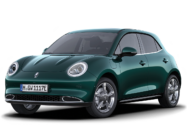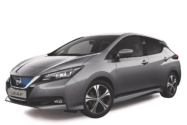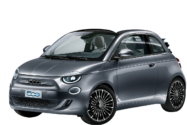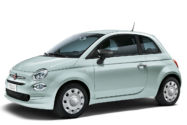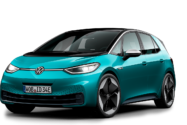28th February 2019
New Green NCAP helps consumers to make environment-friendly car choices
Today, Green NCAP, the new consumer programme to promote greener cars, launches its first round of results. Twelve cars have been rated against a tough new test regime which explores the gap between manufacturers’ claims and real-world performance.
Green NCAP is a unique new consortium, comprising European governments, motoring clubs, consumer groups and universities, hosted and supported by the European New Car Assessment Programme. It aims to promote cars that are less polluting and more fuel- and energy-efficient by providing consumers with independent information about cars’ performance in tests that go well beyond legislative requirements to uncover the differences between manufacturers’ emissions-control strategies.
With members and independent test laboratories in 8 European countries, Green NCAP is an ambitious project which will motivate car manufacturers to develop cars that make the most efficient use of the energy they use and to minimise the pollutant and greenhouse gases they emit. It will provide clarity to consumers in a field awash with confusing information and city-imposed driving restrictions. For now, Green NCAP considers only the energy used while driving (‘tank to wheel’), but in time, well-to-wheel and ultimately the whole life-cycle will be considered, including the energy used to produce the vehicle, the energy it consumes in its lifetime and the energy needed to scrap and recycle its parts.
Pierre Castaing, Chairman of Euro NCAP, said:
“For years, there has been a mismatch between the way cars perform in regulatory tests and how they perform on the road. Consumers often don’t get the fuel economy officially claimed for their vehicles and end up paying for the difference in fuel. Now, legislation is tightening-up, but consumer testing can complement it and go a step further: it can really encourage car manufacturers to beat their competitors by innovating in the field of energy efficiency and emission reduction. We’re confident that they will respond to the challenge, to the benefit of car-buyers and the environment.”
For this, Green NCAP’s first round of tests, twelve cars have been rated: the Hyundai Ioniq and BMW i3, both electric vehicles, achieve a maximum five-star rating; the VW up! GTI gets a creditable four stars; BMW’s X1 2.0d and the Mercedes-Benz A200 are both awarded three stars; the Ford Fiesta 1.0 EcoBoost is rated as two stars in its latest guise, and a one-star rating is given to the Audi A7 50 TDI, the Volvo XC40 T5 and the Subaru Outback 2.5. Three cars – the VW Golf 1.6TDI, the FIAT Panda 1.0 and the previous level Ford Fiesta 1.0 EcoBoost - get zero-star ratings. All three of the zero-star cars are approved to Euro 6b emissions standards, still valid for models introduced before September 2017. However, from September 2019, all cars will have to meet the tougher standards of Euro 6d-temp and updated versions of these cars will be rated in the next round of tests.
For now, electric cars offer consumers the greenest option when buying a car. They are the cleanest and most efficient choice currently available and it would be a huge step forward if all cars could achieve the five-star level that electric cars are at already. However, Green NCAP will soon include driving range in its assessment, and ultimately, will look at the whole life-cycle of the vehicle, which may close the gap between electric cars and those powered by fossil fuels. For some of the petrol and diesel cars, there is a trade-off between pollutant-control and good energy efficiency. The results highlight the strategies that manufacturers have used in order to achieve one or the other. The Green NCAP rating scheme presses for both.
About Green NCAP
Green NCAP is operated by the European New Car Assessment Programme and is supported by the following organisations (in alphabetical order):
- Allgemeiner Deutscher Automobil-Club e V (ADAC)
- Applus+ IDIADA
- Automobile Club d’Italia (ACI)
- Bundesanstalt für Straßenwesen (BASt)
- Bundesministerium für Verkehr und digitale Infrastruktur (BMVI)
- CSI Automotive
- Department for Transport (DfT)
- Eidgenössische Materialprüfungs- und Forschungsanstalt (Empa)
- Federation Internationale de l'Automobile (FIA, represented by FIA Region 1)
- Generalitat de Catalunya
- Horiba MIRA
- Institut für Fahrzeugantriebe und Automobiltechnik (IFA)
- International Consumer Research and Testing (ICRT)
- Ministère de la Transition écologique et solidaire
- Nederlandse Organisatie voor Toegepast Natuurwetenschappelijk Onderzoek (TNO)
- Österreichische Automobil-, Motorrad- und Touringclub (ÖAMTC)
- Touring Club Schweiz (TCS)
- UTAC CERAM
- FIA Mobility Clubs received funding from the FIA Sustainable Mobility Programme, which is supported by the FIA Foundation.
Editor’s note
For full results, visit www.greenncap.com.
For media information, please contact us at media@greenncap.com.
Follow us online and on social media:




